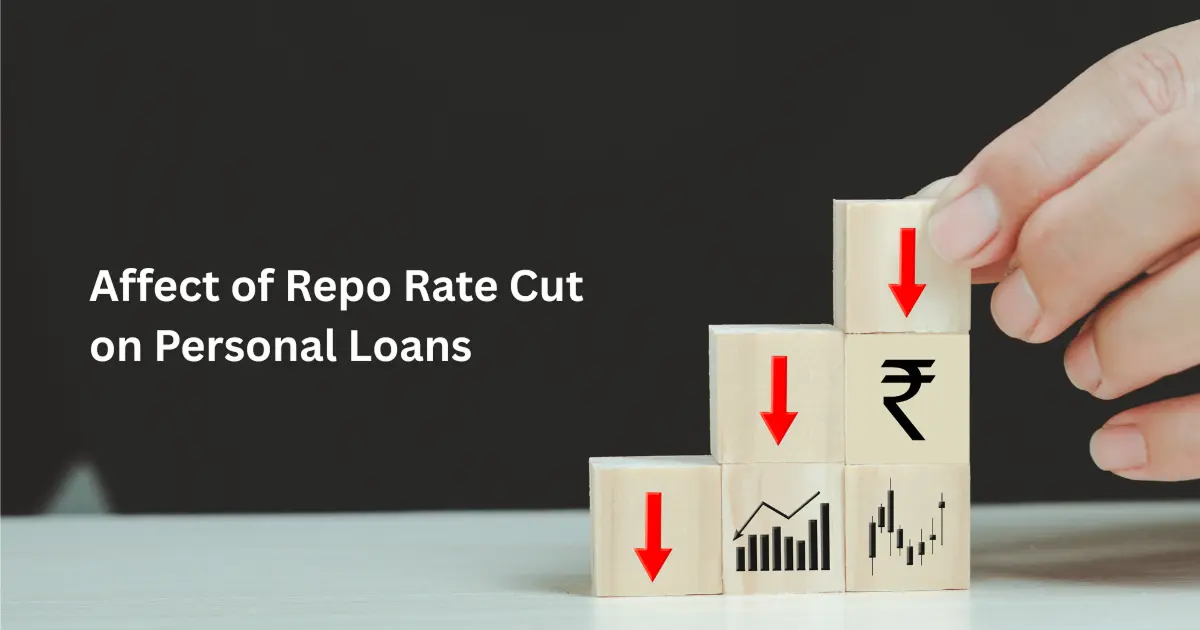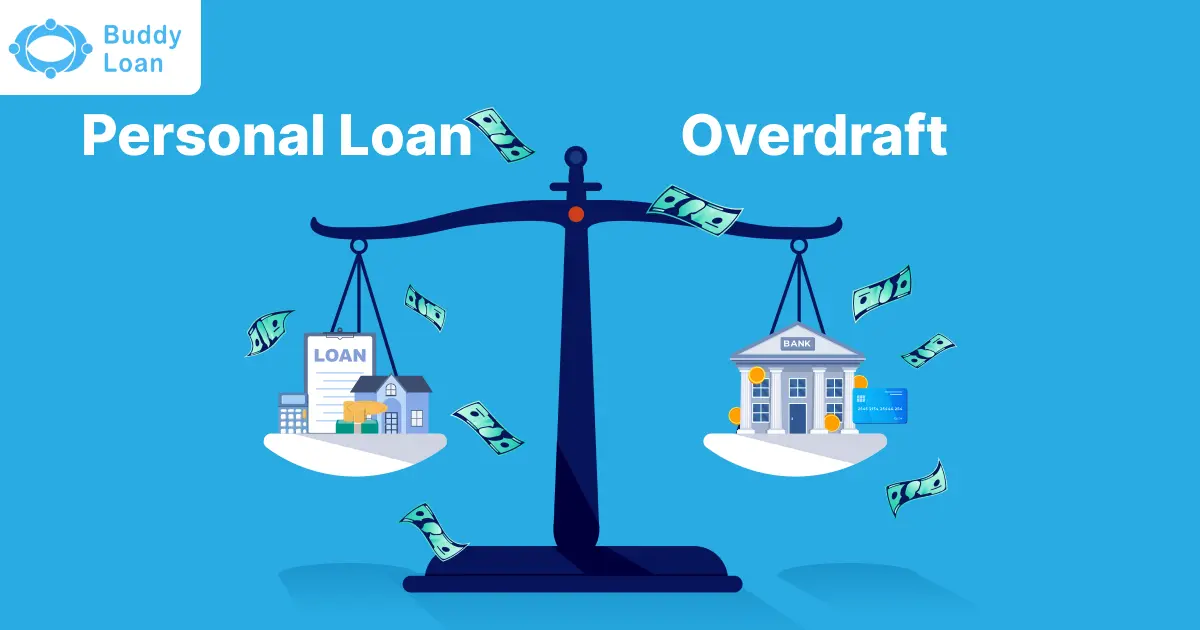Struggling with high-interest rates and hefty monthly payments on your personal loan? Wondering how to refinance in the best way? Run close with the finance blockages as this blog reveals the ultimate solution to them!
Whether you want to consolidate your debt, finance a major purchase, or cover unexpected expenses, personal loans provide a flexible solution. Refinancing your personal loan allows you to replace your existing loan with a new one, often with better terms and interest rates.
In this article, we will guide you on how to refinance your personal loan in the best way possible, but before that let’s try to understand the term “Refinancing”
What Is Refinancing of Loan?
When you refinance, you’re essentially taking out a new loan to pay off your old one. Refinancing can also be a way to consolidate your debts. If you have multiple loans or credit card balances, you can combine them into one loan through refinancing. This simplifies your finances by having only one monthly payment instead of juggling multiple payments.
To refinance, you’ll need to apply for a new loan with a different lender or your current lender. The lender will evaluate your credit history, income, and other financial factors to determine if you qualify for the new loan. If approved, the new loan will be used to pay off your old loan, and you’ll start making payments on the new loan according to its terms.
Why would you Want to Refinance?
- Well, there can be several reasons. One common reason is to get a lower interest rate. If interest rates have dropped since you took out your original loan, refinancing can help you save money by getting a new loan with a lower rate.
- Another reason to refinance is to change the duration of your loan.
For example, if you currently have a 30-year loan and you want to pay it off faster, you can refinance into a shorter-term loan, like a 15-year loan.
This way, you can potentially save on interest payments and become debt-free sooner.
Now that we have understood refinancing, let’s try to understand how to refinance a personal loan.
Step-by-Step Guide To Refinance Your Personal Loan:
1. Assess Your Current Loan:- Before diving into the refinancing process, it’s crucial to evaluate your current loan. Take a look at the interest rate, monthly payments, and any additional fees or charges. Also, determine the remaining balance on your loan.
2. Check Your Credit Score:- Your credit score plays a significant role in obtaining favourable loan terms. A higher credit score often translates into lower interest rates. If your score has improved since you first took out the loan, you may qualify for better rates, potentially saving you money in the long run.
3. Research Lenders:- Compare their interest rates, fees, and repayment options. Reading customer reviews and seeking recommendations can also provide valuable insights into the lender’s reliability and customer service.
4. Gather Necessary Documents:- Like any loan application, refinancing requires certain documents. Prepare your identification documents, proof of income, bank statements, and any other relevant financial information.
5. Calculate Costs and Savings:- Consider the costs associated with refinancing, such as application fees or closing costs. Then, calculate your potential savings by comparing the interest rates and loan terms of your current loan and the new loan offer. If the savings outweigh the costs, refinancing could be a viable option.
6. Apply for Refinancing:- Be thorough and accurate in completing the application to avoid delays. Keep in mind that your credit score may be checked during this process, so avoid applying to multiple lenders simultaneously to prevent multiple inquiries that can negatively impact your credit score.
7. Review Loan Offers:- Pay attention to the interest rate, loan duration, and any additional fees or penalties. Determine if the new loan aligns with your financial goals and offers better terms than your current loan.
8. Negotiate with Lenders:- If you have a good credit score and a stable financial situation, you may have the leverage to negotiate for a lower interest rate or reduced fees. Be prepared to provide evidence of your financial stability and creditworthiness to support your negotiation.
9. Consider Debt Consolidation:- If you have multiple outstanding debts, refinancing your personal loan can also be an opportunity to consolidate them. Debt consolidation simplifies your financial obligations by combining multiple debts into a single loan.
Once your refinancing application is approved, it’s time to close your old loan. Ensure that all outstanding balances are paid.
Key Points To Remember:
Before refinancing your personal loan, there are several important points to consider. Here are some key factors to remember:
Loan Terms:- Pay attention to the interest rate, loan duration, monthly payments, and any fees associated with refinancing.
Fees and Costs:- Consider any fees or costs associated with refinancing. These may include application fees, origination fees, prepayment penalties on your existing loan, or closing costs.
Total Cost of the Loan:- Calculate the total cost of your existing loan and compare it to the total cost of the new loan after refinancing. Look beyond the monthly payment and consider the overall interest paid over the life of the loan.
Repayment Schedule:- Assess the impact of refinancing on your repayment schedule. If you extend the loan term, your monthly payments may decrease, but you could end up paying more interest over time.
Prepayment Penalties:- Check if your existing loan has prepayment penalties. Some loans impose fees if you pay off the loan early. Calculate whether the savings from refinancing outweigh the prepayment penalty, if applicable.
Other Financial Considerations:- Consider other aspects of your financial situation, such as job stability, income changes, and future plans. Ensure that refinancing your personal loan fits well within your overall financial strategy.
Also Read: Walk On The Right Path of Refinancing Journey From Here
Conclusion
Remember, it’s essential to carefully evaluate your individual circumstances and compare loan offers from multiple lenders before making a decision. Consulting with a financial advisor can also provide valuable guidance in assessing whether
refinancing is the right choice for you.
With Buddy Loan, you can apply for a variety of options for personal loans to fund all your plans in advance. Check your latest score with Buddy Score and see if you need refinancing too!
And don’t forget to tell us what you think about our blog and how did it help in your refinancing journey in the comments down below!
Frequently Asked Questions
Q. Can personal loans be refinanced?
A. Yes, personal loans can be refinanced. It can be a smart financial move to reduce monthly payments or save on interest costs.
Q. Does refinancing a loan can affect your credit score?
A. Refinancing a loan can potentially affect your credit score. When you apply for refinancing, the lender will conduct a hard inquiry on your credit, which can temporarily lower your score.
Q. When can you refinance a loan?
A. You can typically refinance a loan at any time. It’s generally beneficial to refinance when interest rates have dropped significantly, your credit score has improved, or you’re looking to change the loan terms.
Q. Are there risks to refinancing?
A. Yes, there are potential risks associated with refinancing. These include incurring closing costs and fees, which can offset the savings from a lower interest rate.
Q. How many times can you refinance?
A. There is no set limit on how many times you can refinance a loan.




